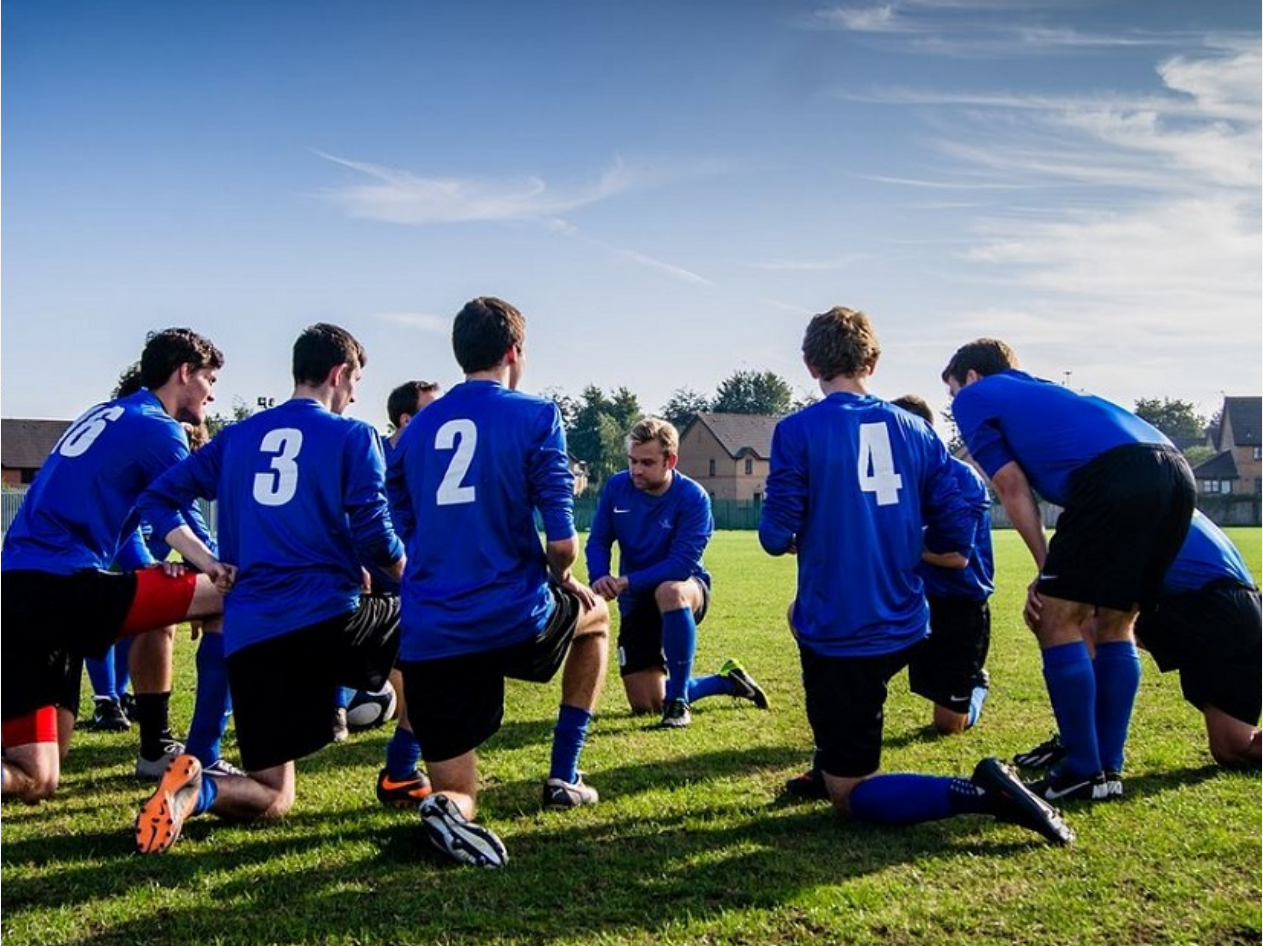Team sports boost life-satisfaction
Photo credit: Thomas Workman, Pixabay
The immediate benefits of physical activity are numerous and well known; better health, better sleep, and more vitality, to name a few. Less frequently do we hear about the long-term psychological benefits that playing sport, particularly team sport, can have on one’s well being.
In the article below, The London School of Economics and Political Science discuss the many benefits of playing team sports including increased feelings of belonging and social identity, which can significantly improve a person’s quality of life. Unfortunately, team sports aren’t equally available to everyone. Homophobic and trans-phobic attitudes are still rife within sporting clubs and universities, and cause unnecessary exclusion for the LBGT community. A study carried out by NUS (National Union of Students UK) shed light on some alarming statics regarding the LGBT community and team sports:
· LGBT+ students who take part in sport at university are 50% less like than their heterosexual counterparts to take part in team sports.
· 46.8% of students find the culture surrounding sport “alienating and unwelcoming”
· 42% had a negative experience at school, so they don’t want to get involved at university
· 14.3% had experienced homophobia
Through our work at Sport Allies, we hope to break the connection between homophobia and sport, and in turn make both the physical and psychological benefits of team sports available to all members of society equally.
Team sports boost life-satisfaction
Originally published by The London School of Economics and Political Science
Debating whether to join a gym or a team to exercise this winter? A new study by the London School of Economics and Political Science (LSE) suggests that by playing sport in a team you will not only gain the health benefits of exercise, you may also be happier.
Researchers analysed a large scale survey of athletes and found that those who reported greater team satisfaction also reporting being more satisfied with their lives overall. This in turn led to further increases in positive feelings towards their team.
At the end of the survey, it was found that athletes who have higher satisfaction with their team tended to report higher life-satisfaction.
The authors posit that one of the keys to the greater life-satisfaction reported by the athletes is the social aspect of competing and training as part of a team, and the personal relationships that develop through the group interactions.
Additionally, the psychological benefits of team membership, such as feelings of belonging and social identity, were also likely to be factors. For example, team membership could help people overcome adversity and deal with failure, as the support network available in the team meant athletes were better equipped to face the mental and physical challenges they encountered.
Previous studies have tended to analyse athletes’ life satisfaction from the perspective of athletes’ and the degree to which they realise their personal goals, attributing higher life-satisfaction to the athletes individual attributes or whether they hold positive feelings about their future..
One of the paper’s authors, Dr Chia-Huei Wu, Assistant Professor of Management at LSE, said: “When competing and succeeding in sport, this study shows that the social environment of the team is important in terms of overall life-satisfaction. We found that this can be explained by the social interaction and feelings of identity that comes from being a team member, which are not as present when an athlete pursues their own individual goals.
“There are important lessons in this study for those participating in sport at any level, as playing in a team environment will bring a range of benefits beyond the health benefits of exercise. Joining a team may bring feelings of belonging with your teammates, and being satisfied with your team may help you be satisfied with your life.”
The authors analysed survey data from 459 athletes between the ages 12 to 20 years who were recruited from a diverse range of sports, such as swimming, athletics, basketball, and cycling, which asked questions about their life-satisfaction levels at three intervals over a six month period.
Behind the article
Top-down or button-up? The reciprocal longitudinal relationship between athletes’ team satisfaction and life satisfaction was published in Sport, Exercise, and Performance Psychology, 2017, by Chen, Lung Hung, Wu, Chia-Huei, Lin, Shin-Huei and Ye, Yun-Ci ISSN 2157-3905 (In Press).

